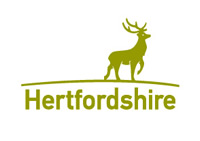Oral health
Oral health and the EYFS framework
Oral health is an important part of every child’s wellbeing. It impacts on the ability for children to eat and sleep, to socialise with confidence and to concentrate at school. However, many children experience problems with their oral health.
Tooth decay affects around a quarter of five-year olds in England and it is also the leading cause of hospital admissions for five to nine-year-olds by some distance. Many children who go to hospital because of tooth decay need to have teeth removed under general anaesthetic.
This is despite the fact that tooth decay is almost entirely preventable.
The EYFS framework states that early years providers must promote good oral health. A new and updated set of children’s oral health ‘Top Tips for Teeth’ resources are now available to support dental professionals, health care professionals and those working in Early Years settings to encourage parents and carers teach children good oral health.
The resources aim to raise awareness and provide instruction for good oral hygiene in children aged 0-3, 3+ and pregnant women, and address the impact of poor dental health. Parents and carers can also find new content with tips and advice on the Start for Life website.
A range of free downloadable and orderable resources, that can be used in dental practices, hospitals, Family Hubs, children’s centres and other Early Years settings, are available to partners on the campaign resource centre, including:
- Social media toolkit
- Posters (including empty belly version for partners to add local service information)
- Digital screens
- ‘Top tips for teeth’ leaflets
- Editorial copy
Top tips for teeth leaflets
Referral pathway
The Oral Health Alliance has published its agreed referral pathway as a guide. It is very important children are able to access the pathway when in Reception year. Permanent or ”grown-up” teeth can start to appear when children are age 5-7. The first permanent molars come through at the back of the mouth and no baby teeth are lost to allow it to appear. This means parents are often unaware that their child has permanent molars and they can get missed when teeth are being brushed. These teeth are really prone to decay and often have to be extracted.
Access to the pathway would give parents the information and support they need to prevent this happening.
Information from the Family Support Service
The Emerging Needs teams of Hertfordshire’s Family Support Service offer the oral health pathway for children who have been identified by Public Health Nursing, their GP or dentist, their school or Early Years Provider. Referrals can be made via the referral portal and will be picked up by one of the Emerging Needs team, who will make contact with the family; *please note that consent from the family must be obtained before making the referral.
The team will work with the family along one of three pathways that best meets their needs:
|
1 Children under age 2. One to one support providing information and resources together with a place on a targeted course such as Little Chefs or Little Learners. |
2 Children between 2 and 5 years. One to one support providing information and resources together with a place on a targeted course such as Little Chefs or Young Explorers. |
3 Individualised one to one support for the family; Suitable for children in full time education. Primary schools can access the animation provided for this age group to show children how to brush their teeth. They can contact their School Nursing team or FCS for more details on 0300 123 7572 |
Working together, the Hertfordshire Family Centre Services (this includes the Public Health Nursing Service) and Hertfordshire County Council are improving the oral health of vulnerable under 5’s, preventing tooth decay, improving oral hygiene and promoting healthy eating.
Hertfordshire Healthy Mouths programme distributes oral health packs (a toothbrush, toothpaste, timer, oral health leaflet) to vulnerable families with children under 5. We do this through Health Visitors at one and two year development reviews and key contact networks and case lists. Oral health packs are also now being distributed to foodbanks and those in temporary accommodation.
The Family Support Service also has resources that Early Years providers can borrow and dental packs as part of the Healthy Mouths project. An Oral Health presentation is also available for EY providers to share with staff teams as a refresher of key messages. Please contact us on 0300 123 7572 for further information.
This presentation has been kindly shared by OneYMCA Family Support Service, for your use in staff oral health training.
